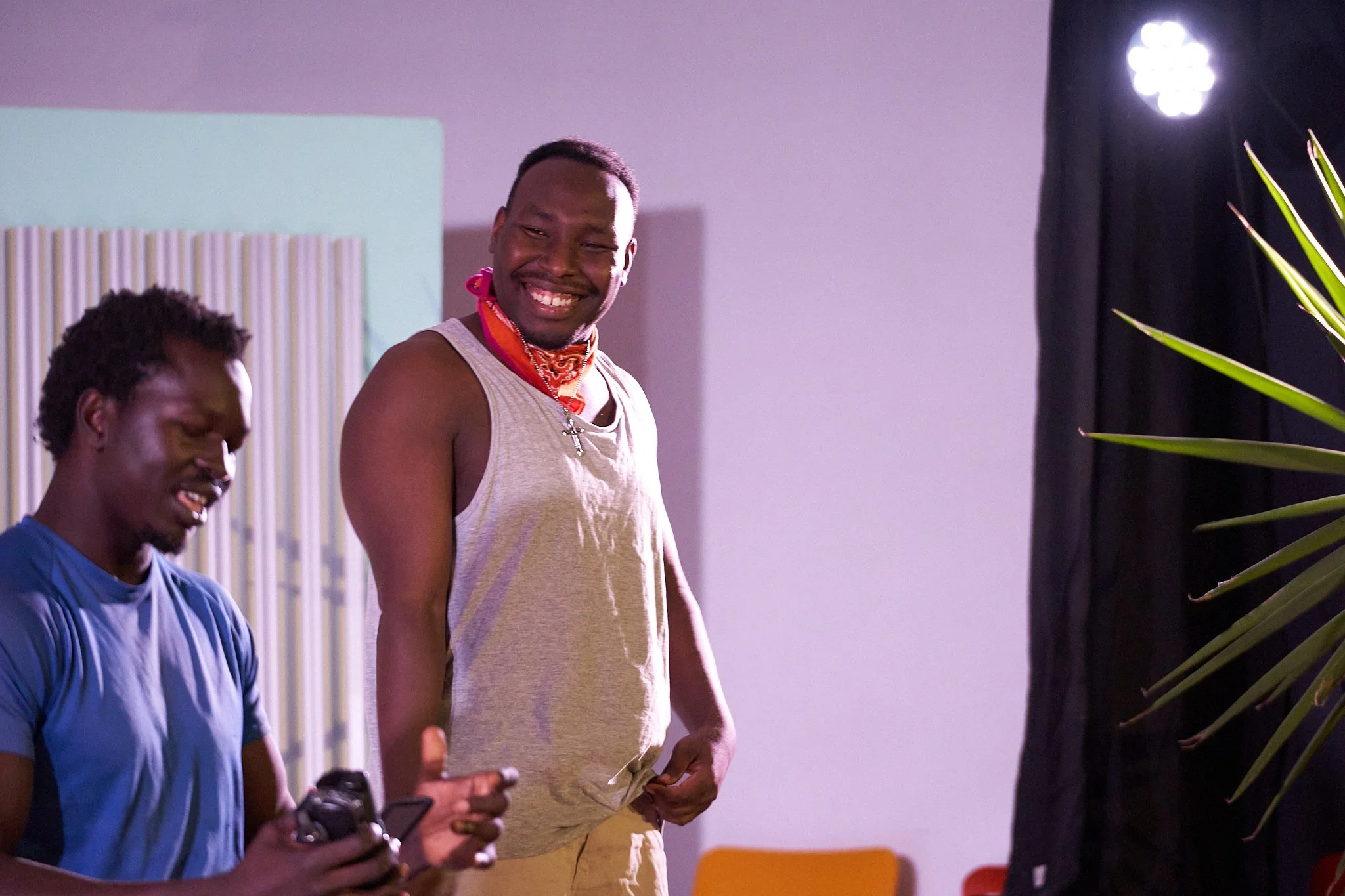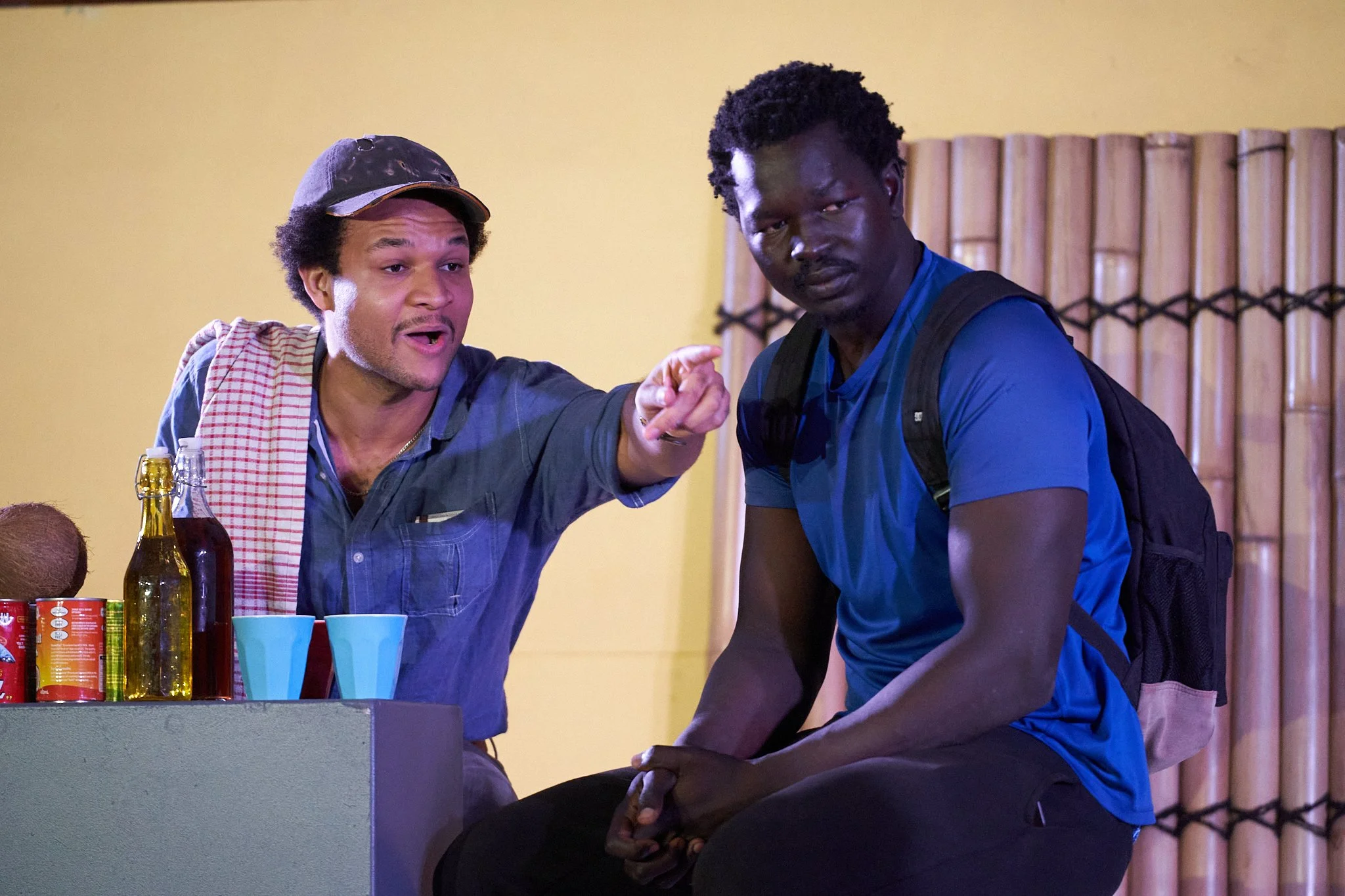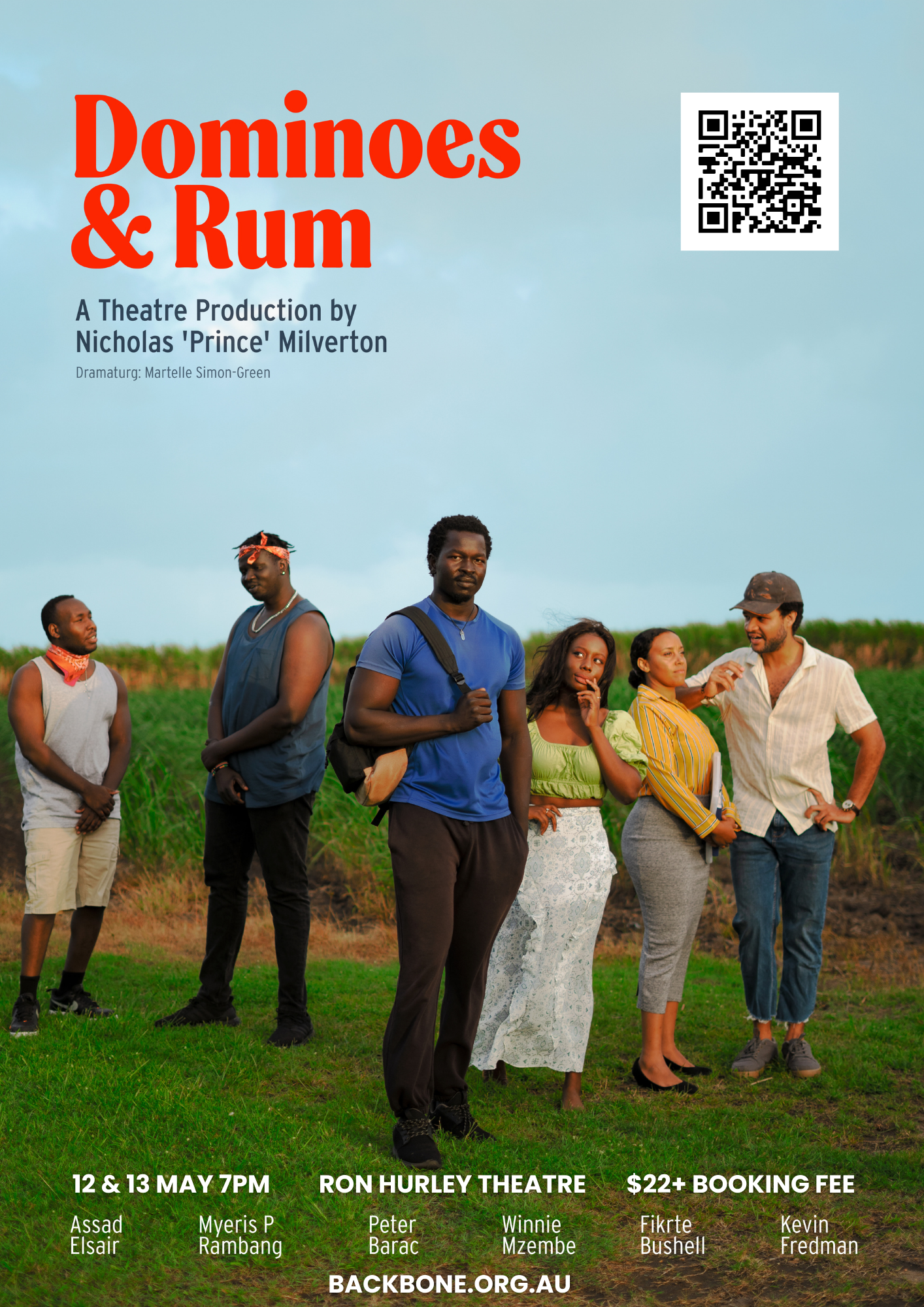INTERVIEW: Dominoes & Rum Writer and Director Nicholas 'Prince' Milverton
When undertaking any new work of theatre or writing, there is a huge process of research and development before pen can even be put to paper. What goes into making a new work of theatre, and how does each process manifest uniquely to the needs of each work?
We spoke to writer and director of upcoming production Dominoes & Rum, Nicholas ‘Prince’ Milverton about his experiences creating this play to get an insight into this unique play.
Image by Nick Bleeker
Where did the idea for this ‘Dominoes & Rum’ come from?
At the age of 23 I moved from London to Saint Thomas, Jamaica, in order to trace my father's family and become more connected to my Caribbean heritage. I spent 5 months living in different areas across Jamaica before I returned to the UK. Everyday was a continual challenge to understand the amazing but confusing world around me .The experience left me with many mixed emotions which took me many years to understand. This was the inspiration for the play.
Tell us about the process of creating the fictional location: Colibri.
I wanted to make a play that was loosely based on Jamaica whilst also incorporating elements that could be found in many developing countries around the world. I knew that I could not write about Jamaica from the perspective of someone who was born and raised on the Island because I simply did not have the depth of knowledge that comes with that. I could, however, bring many of the deeper concepts across if I was allowed the freedom to divert from a specific nation and create my own without the fear of getting something wrong. Colibri then became an amalgamation of my perspectives on Jamaica as well as experiences of people who were interviewed about their experiences back 'home'.
Image by Nick Bleeker
Image by Nick Bleeker
Tell us about the interview process, how did that inform your writing?
The interview process served as a great inspiration for the writing in the play. The interview was based around 10 questions that related to a return home. It asked questions like 'what smells, sounds, colours, remind you of home?', 'how did your perspective of home change after you returned?' and 'did you feel more accepted or alienated when you returned?'. Some of the answers to these questions made their way into the play either directly or indirectly. For example, one of my best friends had an experience as a kid where he landed in Jamaica and someone tried to take his bag before his mother stepped in. We find something similar happen at the start of Domines & Rum.
Tell us more about the title of the play, Dominoes & Rum
I called the play Dominoes & Rum because they represent a form of entertainment in many countries across the Caribbean. Despite the many economic, social or even natural disasters, you'll find people playing Dominoes and drinking rum. It represents the idea of something that remains constant despite the chaos.
Why this play, and why now?
We sometimes hear about the story of migration from developing nations to the Western world but we seldom hear the story of returning back home. Even within the UK, I feel that there has become a massive separation between Caribbeans living within the UK and their relatives living on the Islands. As the decades have gone by since the Windrush generations came to the UK, that separation has only become bigger. I feel like the journey back 'home', however far back that may be, is an important one to represent across many cultures.
How did you go about casting the play?
Funnily enough, I already had four of the six actors before I even put pen to paper. I had promised Peter Barac that I would write a play with him as the lead since early 2021. After acting in my film 'My Win is Yours' (2021), Kevin Fredman and Myeris P Rambang were eager to be a part of my next project and Fikrte Bushell had shown interest. The remaining cast members, Winnie Mzembe and Assad Elsair were recommended to me by respected actors in the industry.
Martelle Simon-Green, the Assistant Director and Dramaturg, worked with me as a workshop facilitator at Backbone. We had already spent many hours crafting performances with our classes, so she was the perfect addition to the team.
What has been your biggest takeaway from the development and rehearsal process?
It was another reminder of the importance of collaborative work when creating a theatre production. An actor might have a way of playing a character that inspires me to finish their character arc in a particular way, another actor might suggest a prop that would enhance the performance. I just love being around an open-minded, collaborative energy in the theatre space.
Image by Nick Bleeker
What do you think will surprise audiences about ‘Dominoes & Rum’?
It is a unique piece of theatre which allows the audience to come into contact with deep concepts whilst laughing almost all the way through. I think audiences will be surprised by how much we are able to pack into the piece without it becoming boring or out of touch. We keep the play punchy all the way through!
Where do you hope to see this play in the future?
I'd love to see this play at La Boite theatre, QPAC or on tour around Australia.
What do you want audiences to take away from seeing ‘Dominoes & Rum’?
Most importantly, I want the audience to be entertained. From the very first sound of the aeroplane landing on the tarmac in the first scene to the final scene at the end of the play, I want the audience to be transported to our Island of Colibri. I want the audience to leave the theatre space and say 'wow, I'm back in Australia, I forgot about that!'.





